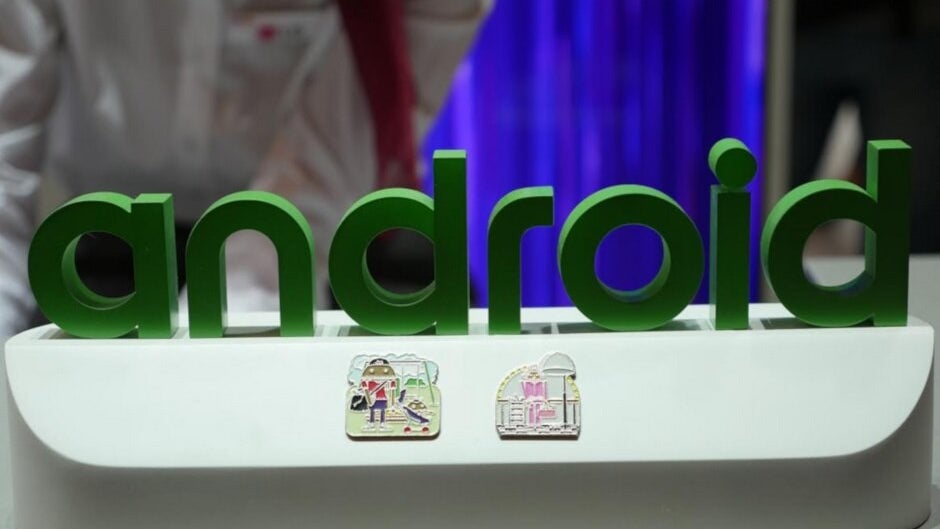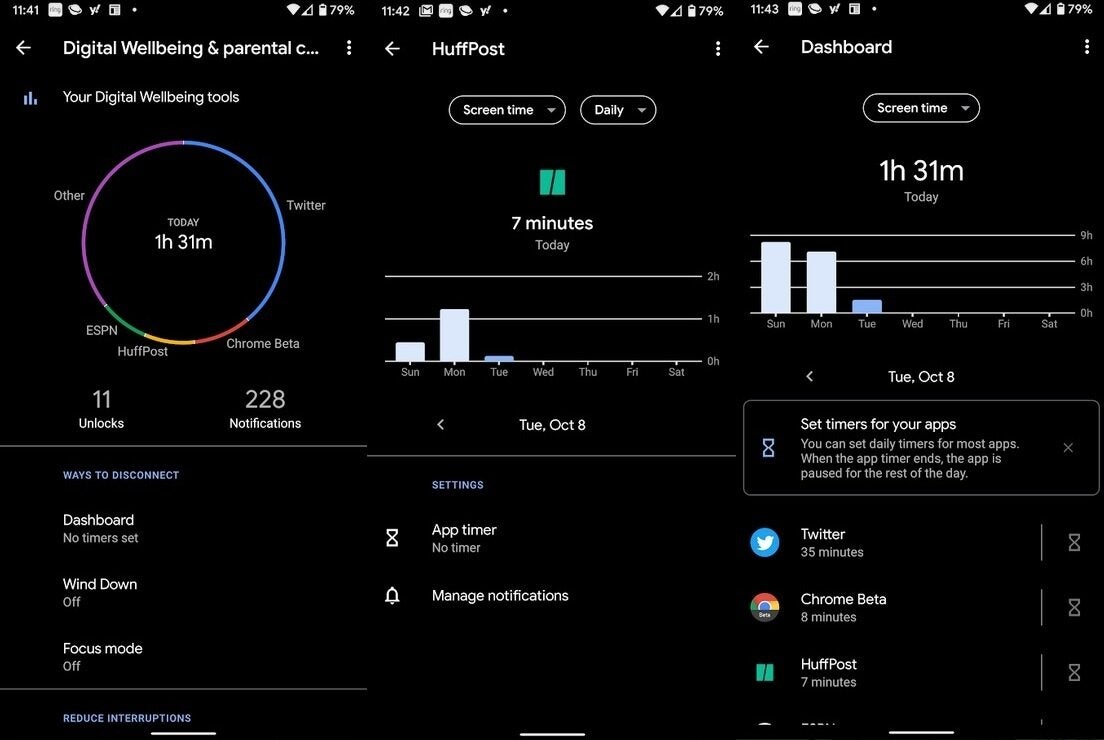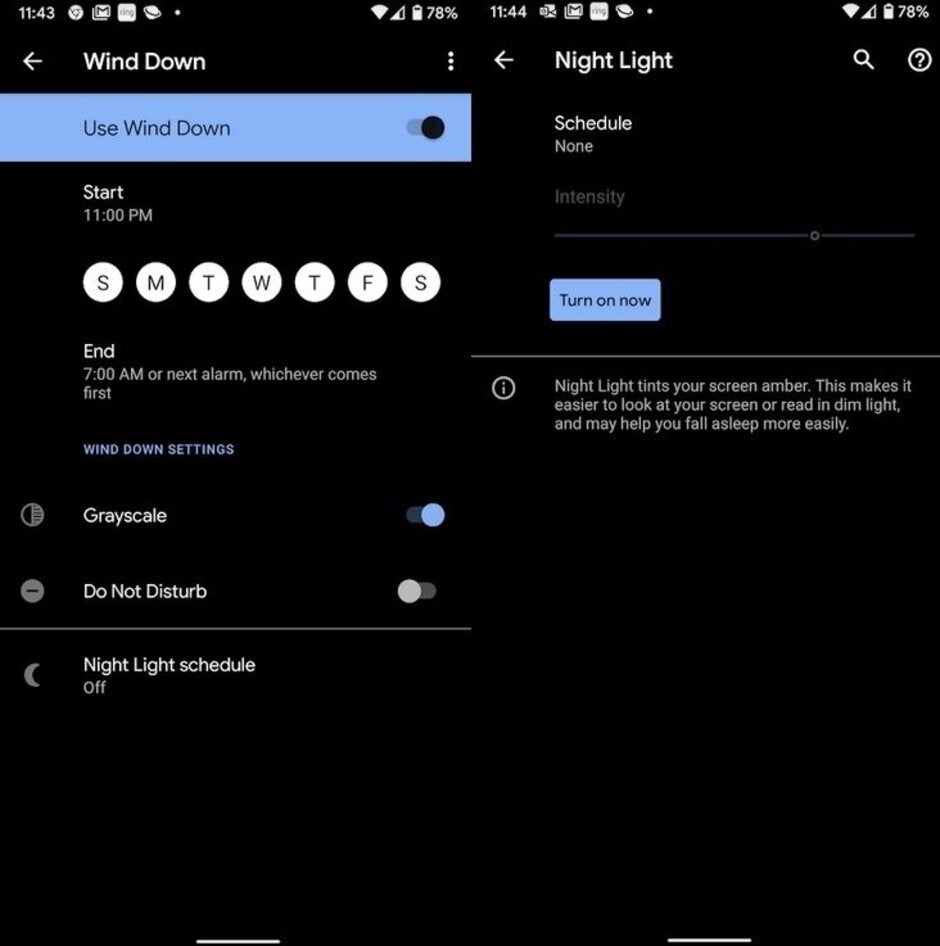Google now requires all Android manufacturers to include Digital Wellbeing and parental controls

Last year, several students at Stanford started a group called Stanford Students Against Addictive Devices (SSAAD). Protesting in front of the Palo Alto Apple Store, SSAAD members carried signs demanding that Apple do something about screen addiction. The group wanted Apple to develop an app that would track phone usage and show patterns of usage. SSAAD also wanted the company to add an "Essential mode" that when enabled, would limit the device's functionality allowing it to make/take calls and texts, and to take pictures.
Last year, in response to those calling for Apple to do something about screen addiction, the company included Screen Time with iOS 12. The feature measures iPhone user's screen time and also breaks it down by app. It can be used to limit how long parents and their children spend using an app during the course of a day. Not wanting to be left behind, Google developed a similar version of Screen Time for Android. Called Digital Wellbeing, the app first appeared on Pixel handsets running Android 9 but was soon made available to a small group of other Android phones as well. According to XDA, Google is no longer making Digital Wellbeing an option for Android manufacturers. Starting last month, Google has demanded that its partners include the app (or a custom version) along with parental controls on all Android devices.

Screenshots from the Digital Wellbeing app
Digital Wellbeing will track how long a person interacts with his Android phone over the course of a day. Like Screen Time, it also breaks this down by app and will show trends over the course of a week. It also keeps track of how many times a phone has been unlocked and how many notifications have been received. The Wind down setting starts to prepare users for bed by offering them several options to help them disconnect from their handset for the night. This includes removing all color from the screen by activating Grayscale, enabling Do Not Disturb to end interruptions, and turning on Night Light to remove blue light from the display "to better match the natural light of the user's time of day and location." Some studies have shown that viewing blue light in the evening could make it harder for someone to fall asleep.
How many of you actively use Screen Time or Digital Wellbeing?
With Family Link, parents can control the amount of time their kids spend each day on a particular app. Parents can even do this for themselves. Once the predetermined time has expired, the app closes and the icon dims. At midnight local time, the app will be available for use once again. And if a child needs some extra time on an app, the parents can award him or her with some bonus time.

Wind down starts the process of weaning users off of their Android phone in preparation for bed
XDA has obtained a copy of Google’s GMS Requirements; this document lays out the technical requirements that Android manufacturers must meet in order to get Google's approval to pre-install Google apps on their phones and tablets. These are key Android apps including the Google Play Store and Google Play Services. The copy in XDA's possession is dated September 3rd and goes into specific detail how core Google apps like Search, Maps, Gmail and Chrome, must be placed by default inside a folder on the home screen marked Google.
The document says that new and existing products that launch with Android 9 or Android 10 after September 3, 2019, or are upgraded to either Android build after that date, "must have a digital wellbeing solution with parental controls at the top level of the settings app." Google goes on to say that manufacturers can either install its Digital Wellbeing app or develop their own "custom wellbeing and parental controls solution."
[img center [[351598]]:"Google orders Android manufacturers to include Digital Wellbeing or a custom app with parental controls with their phones and tablets"]
With both Apple and Google appearing to be sincere about limiting the usage of their own products before addiction sets in (and for many of us it might be too late), we wonder how many of our readers are actively using Screen Time or Digital Wellbeing. Let us know by dropping your comments in the box below.
Follow us on Google News













Things that are NOT allowed:
To help keep our community safe and free from spam, we apply temporary limits to newly created accounts: